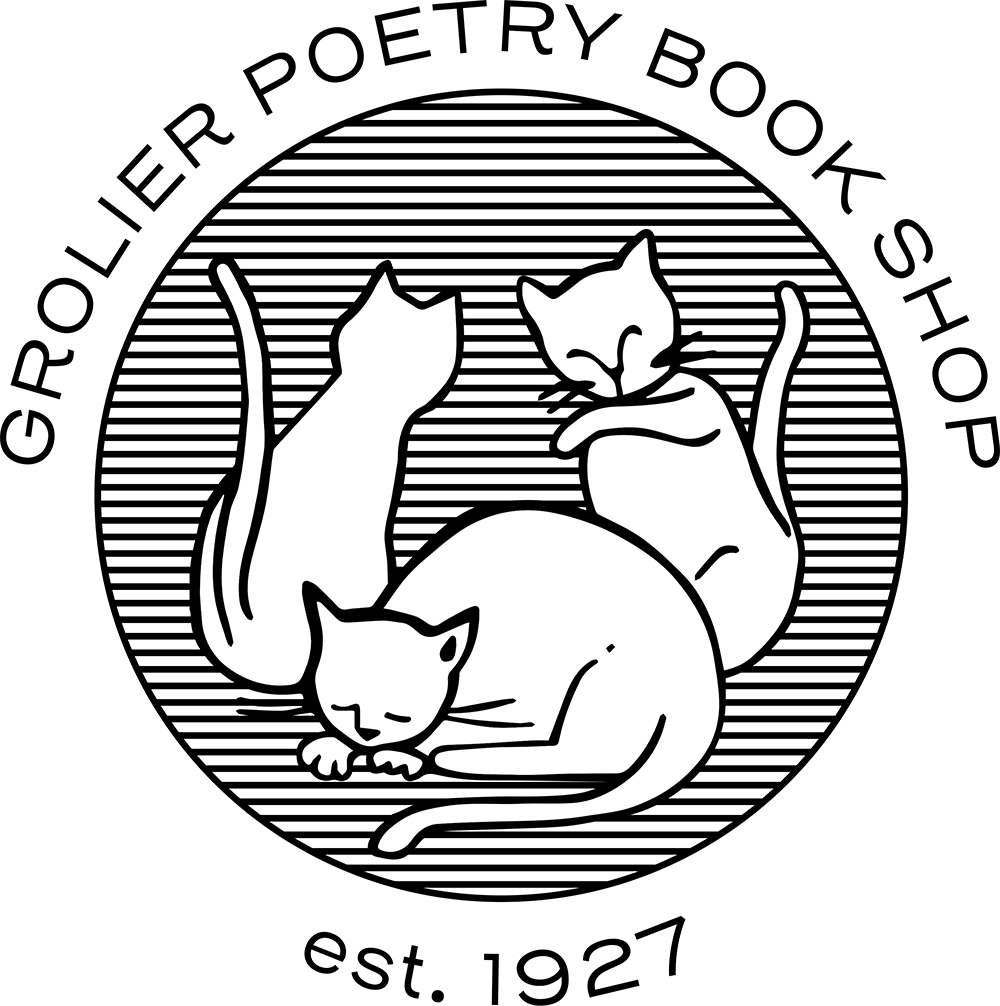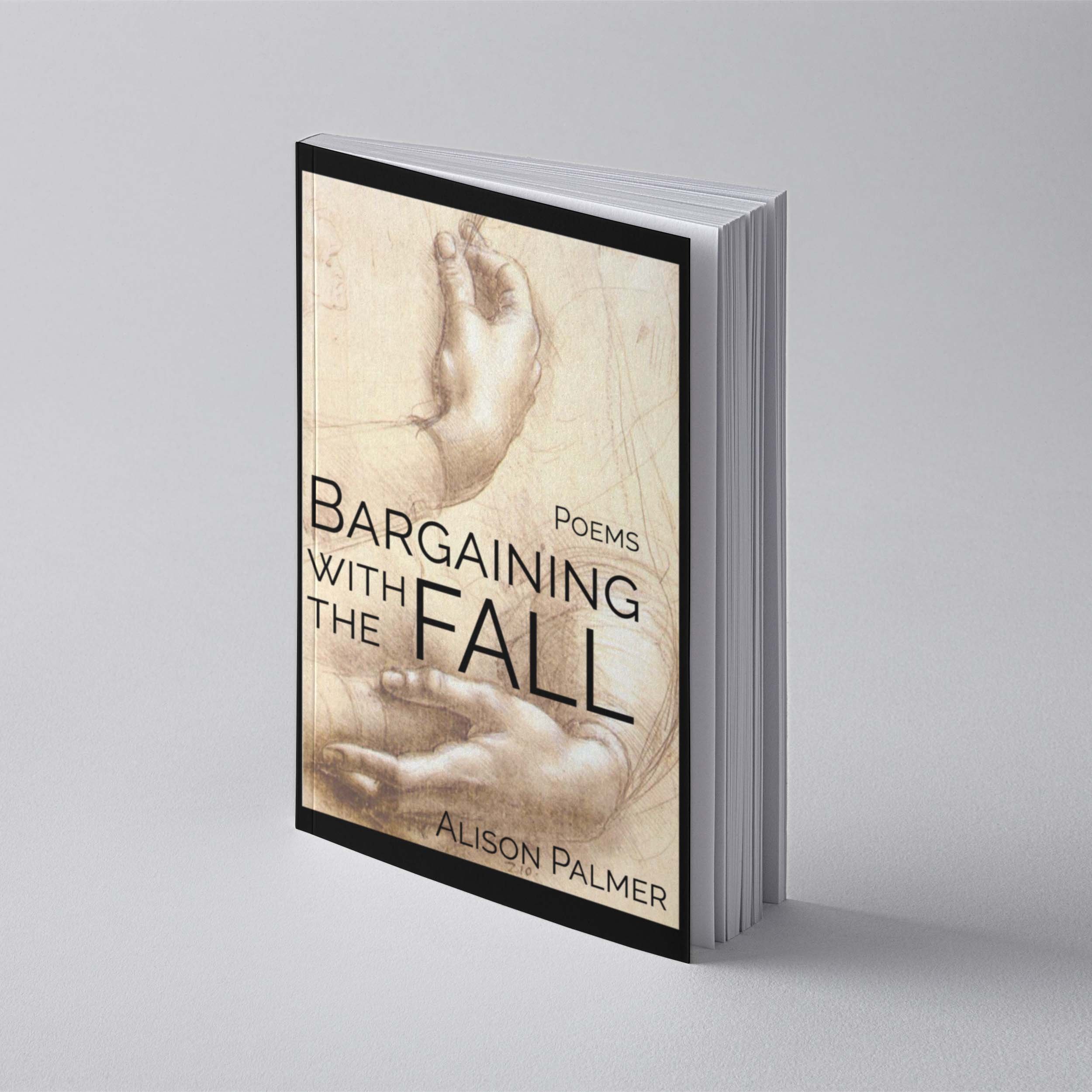Bargaining with the Fall by Alison Palmer
“Where do you find painlessness,” Alison Palmer asks in the opening line of her new poetry collection written in response to the accidental fall that first paralyzed her father, and ultimately killed him. It’s a question nearly all of us will ask eventually. Death being a universal experience, it’s the rare poet who can find a way to write of grief in an original way; but Palmer is that rare poet, and as we accompany her through her process of losing her father, we feel not only her specific loss, but the cavernous absence that results from every death. A man for whom “gravity / used to be your passion” is reduced to “Hospital / Creature, Room 802” (as we learn the meaning of “tetraplegia”); and then is reduced further to ashes that she wishes she could “form back into limbs that work.” “I failed / to save the whole of you,” she laments; but really, she does save him, for he lives vividly in her verse. There is a crushing moment when she recalls her favorite photo with him, “our foreheads / press together,” a gesture repeated near the end of his life when he asks her to “Put your head on mine, the only place left you can feel.” “I’m mostly made of bruises” she says at the close. So are we all, once life is done with us – that is, if we have been fortunate enough to be grazed by love, and its loss.
“In this beautiful book, Alison Palmer bargains not only with the fall that caused her father’s paralysis and subsequent death—wishing, dreaming, denying—but also with the vicissitudes of grief itself, ‘rationing out reality in doses.’ In poems of intimate address, she finds a wealth of image and metaphor to evoke her lost father: he is ‘part of the woven sun,’ or stars, or moon; he is ashes, and the box that contains them; he is ‘the smallest ship in the rain.’ And she? “Remember how I keep you human,” she says, and she does, with these heartbreaking poems.” —Martha Collins, author of Casualty Reports
“Where do you find painlessness,” Alison Palmer asks in the opening line of her new poetry collection written in response to the accidental fall that first paralyzed her father, and ultimately killed him. It’s a question nearly all of us will ask eventually. Death being a universal experience, it’s the rare poet who can find a way to write of grief in an original way; but Palmer is that rare poet, and as we accompany her through her process of losing her father, we feel not only her specific loss, but the cavernous absence that results from every death. A man for whom “gravity / used to be your passion” is reduced to “Hospital / Creature, Room 802” (as we learn the meaning of “tetraplegia”); and then is reduced further to ashes that she wishes she could “form back into limbs that work.” “I failed / to save the whole of you,” she laments; but really, she does save him, for he lives vividly in her verse. There is a crushing moment when she recalls her favorite photo with him, “our foreheads / press together,” a gesture repeated near the end of his life when he asks her to “Put your head on mine, the only place left you can feel.” “I’m mostly made of bruises” she says at the close. So are we all, once life is done with us – that is, if we have been fortunate enough to be grazed by love, and its loss.
“In this beautiful book, Alison Palmer bargains not only with the fall that caused her father’s paralysis and subsequent death—wishing, dreaming, denying—but also with the vicissitudes of grief itself, ‘rationing out reality in doses.’ In poems of intimate address, she finds a wealth of image and metaphor to evoke her lost father: he is ‘part of the woven sun,’ or stars, or moon; he is ashes, and the box that contains them; he is ‘the smallest ship in the rain.’ And she? “Remember how I keep you human,” she says, and she does, with these heartbreaking poems.” —Martha Collins, author of Casualty Reports
“Where do you find painlessness,” Alison Palmer asks in the opening line of her new poetry collection written in response to the accidental fall that first paralyzed her father, and ultimately killed him. It’s a question nearly all of us will ask eventually. Death being a universal experience, it’s the rare poet who can find a way to write of grief in an original way; but Palmer is that rare poet, and as we accompany her through her process of losing her father, we feel not only her specific loss, but the cavernous absence that results from every death. A man for whom “gravity / used to be your passion” is reduced to “Hospital / Creature, Room 802” (as we learn the meaning of “tetraplegia”); and then is reduced further to ashes that she wishes she could “form back into limbs that work.” “I failed / to save the whole of you,” she laments; but really, she does save him, for he lives vividly in her verse. There is a crushing moment when she recalls her favorite photo with him, “our foreheads / press together,” a gesture repeated near the end of his life when he asks her to “Put your head on mine, the only place left you can feel.” “I’m mostly made of bruises” she says at the close. So are we all, once life is done with us – that is, if we have been fortunate enough to be grazed by love, and its loss.
“In this beautiful book, Alison Palmer bargains not only with the fall that caused her father’s paralysis and subsequent death—wishing, dreaming, denying—but also with the vicissitudes of grief itself, ‘rationing out reality in doses.’ In poems of intimate address, she finds a wealth of image and metaphor to evoke her lost father: he is ‘part of the woven sun,’ or stars, or moon; he is ashes, and the box that contains them; he is ‘the smallest ship in the rain.’ And she? “Remember how I keep you human,” she says, and she does, with these heartbreaking poems.” —Martha Collins, author of Casualty Reports

